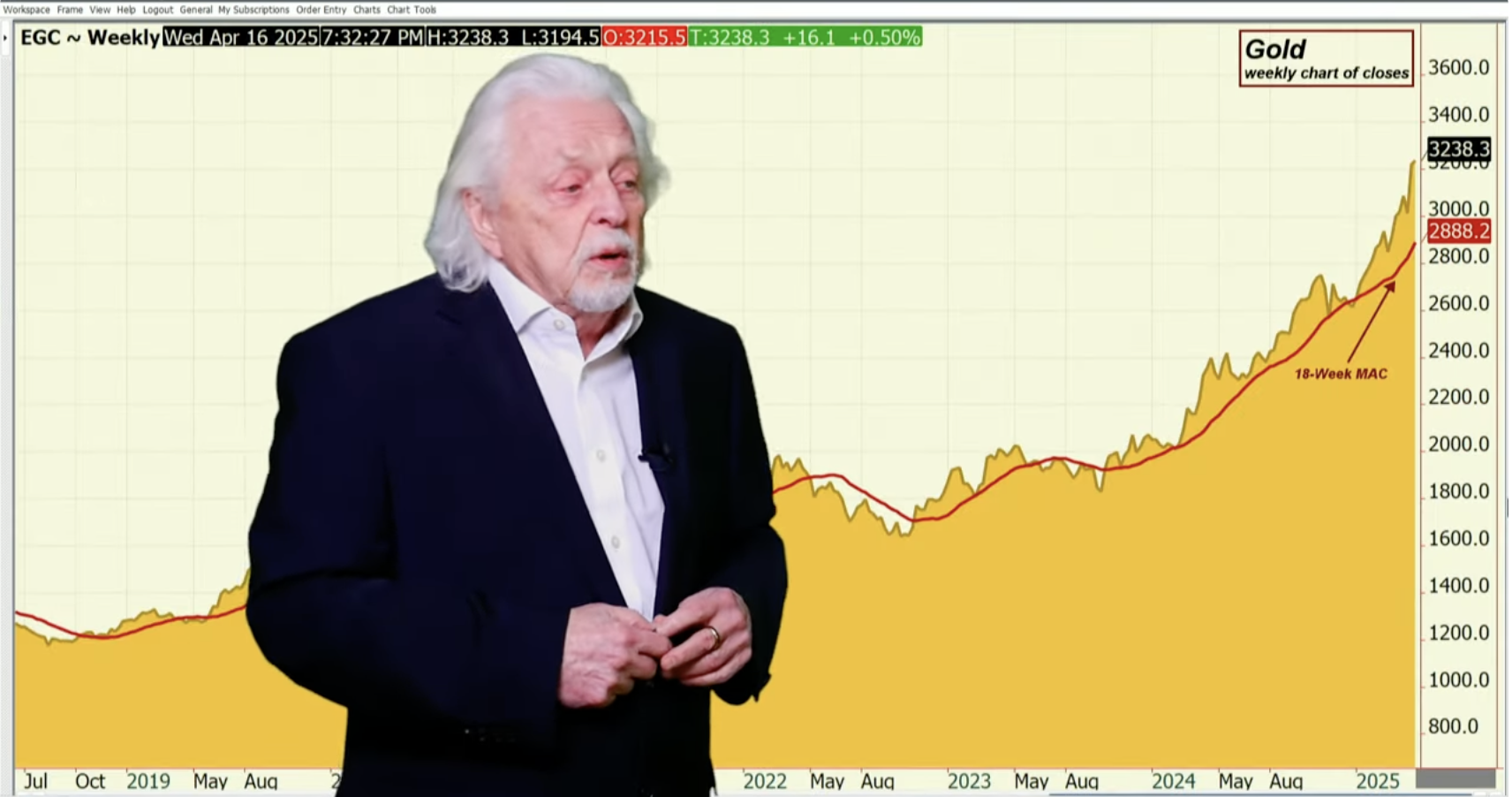In this unique “Ask Mike Anything” edition of the Money Metals Midweek Memo podcast, host Mike Maharrey tackled a wide range of audience questions on critical topics surrounding sound money, precious metals, inflation, and broader economic dynamics.
Here’s a comprehensive summary of each question asked and Mike’s detailed responses:
1. How Will the World’s Shift Away from the Dollar Impact Metal Markets?
Heather asks: “How will the world’s shift away from the dollar impact metal markets?”
Mike explains that the extent of the dollar’s diminishing role will shape the impact on metals. If the shift involves adopting a multi-currency system, where various global currencies hold reserve status, then precious metals may benefit as central banks and countries store their wealth in gold to mitigate risk. This is already seen as banks worldwide increase gold reserves. Should the world revert to a gold-backed currency, gold prices would likely rise dramatically, potentially between $10,000 and $15,000 per ounce. However, Mike views a multipolar currency system as more probable, meaning demand for gold would still rise as nations seek a reliable store of value outside the dollar.
2. What is the Best Way to End the Fed?
Mikey asks: “What is the best way to end the Fed?”
Mike shares that ending the Federal Reserve is improbable through political channels, given the government’s reliance on the Fed’s ability to inflate and finance its spending. A more plausible route would be fostering currency competition by allowing alternative forms of money, like gold, silver, or cryptocurrencies, to gain ground. He emphasizes the importance of grassroots efforts, noting that the Sound Money Defense League is actively working at the state level to implement policies that facilitate sound money practices, potentially loosening the Fed’s control over the financial system from the ground up.
3. Would a Gold Standard Help with Inflation?
Jason asks: “Would a gold standard help with inflation?”
According to Mike, a true gold standard would effectively end inflation, as it limits the government’s ability to inflate the currency by restricting money issuance to gold reserves. He points out that inflation is a deliberate policy tool, with the government maintaining a 2% inflation target to subtly erode purchasing power without triggering public backlash. Under a gold standard, such manipulation would be impossible, as currency supply would align with gold reserves, thus stabilizing the economy and ending inflation.
4. What is the Airspeed Velocity of an Unladen Swallow?
Darren asks: “What is the airspeed velocity of an unladen swallow?”
A humorous nod to Monty Python and the Holy Grail, Mike responds playfully, keeping in the spirit of the film and lightheartedly engaging with the audience.
5. Why is the Gold-Silver Ratio 82:1 if it Comes Out of the Ground at 9:1?
Rahand asks: “Why is the gold-silver ratio 82:1 if it comes out of the ground at a 9:1?”
Mike explains that while silver is mined at a 9:1 ratio compared to gold, the market price ratio currently sits much higher at 82:1. This discrepancy arises because silver serves dual roles as both a monetary and industrial metal, with around 50-60% of its demand coming from industrial applications. Silver’s market dynamics differ from gold’s, leading to a wider spread in price ratios. Despite this, he points out that the current high ratio might indicate silver’s undervaluation, signaling a potential buying opportunity for investors.
6. In IRA Vehicles, Do You Hold the Physical Metals? If Not, How Do You Know You Can Gain Access When the Fan Gets Clogged with Manure?
John asks: “In these IRA vehicles in metals, do you hold the physical metals? If not, how do you know you can gain access when the fan gets clogged with manure?”
Mike clarifies that physical metals in an IRA must be stored in IRS-approved depositories, like Money Metals’ new high-security facility, the “Fort Knox of the West.” While personal storage can provide immediate access in a crisis, he recommends diversifying storage methods to balance accessibility and security. By using both depository storage and personal storage, investors can manage their risk while ensuring their precious metals are safe and available when needed.
See the news Money Metals Depository video here.
7. Since 2021, a Number of Professional Athletes Have Taken a Portion of Their Salaries in Bitcoin. Have Any Taken Salary in Precious Metals? If They Had, Would They Be Ahead Today Over Their Peers?
Allan asks: “Since 2021, a number of professional athletes have taken a portion of their salaries in Bitcoin. Have any taken salary in precious metals, and if they had, would they be ahead today over their peers?”
Though Mike is unaware of athletes opting for salaries in precious metals, he believes it would be advantageous. Unlike fiat currency, which erodes in value, precious metals like gold have a proven track record as inflation hedges. He points out that gold has recently reached new inflation-adjusted highs, showing its resilience as a store of wealth. Athletes paid in gold would retain, if not grow, their purchasing power compared to fiat-paid peers.
8. How Much Wood Can a Woodchuck Chuck?
John asks: “How much wood can a woodchuck chuck?”
Mike replies with a lighthearted response: “A woodchuck can chuck as much wood as a woodchuck could chuck if a woodchuck could chuck wood.”
9. What is the Process the Bullion Banks Use to Smash Silver Prices? Who Wins and Who Loses? Are There Any Leading Indicators that Suppression is About to Occur?
Andrew asks: “What is the process the bullion banks use to smash silver prices? Who wins and who loses? Are there any leading indicators that suppression is about to occur?”
Mike acknowledges that price manipulation, especially in the silver market, is real and can be achieved through practices like “spoofing,” where large orders are placed and then quickly canceled to create false impressions of demand or supply. He shares that although he’s not an expert on market manipulation, some industry professionals believe it is becoming harder for the paper metals markets to suppress prices as actual supply-demand dynamics gain influence. GATA (Gold Anti-Trust Action Committee) is a great resource for understanding this complex issue further.
10. What Even is Hockey, Anyway?
Nelson asks: “What even is hockey, anyway?”
Mike enthusiastically answers, “Hockey is the greatest sport ever.” He encourages everyone to experience a live hockey game, noting that even non-sports fans often enjoy it, as hockey is much more thrilling in person than on television.
11. Are We Experiencing the Beginning Stages of Hyperinflation?
Brandon asks: “Are we experiencing the beginning stages of hyperinflation?”
Mike acknowledges the recent rise in inflation, citing U.S. interest payments exceeding $1 trillion for the first time in fiscal 2024. However, he is skeptical of imminent hyperinflation due to the dollar’s continuing role as the global reserve currency. Instead, he forecasts a sustained period of high inflation as global demand for the dollar declines gradually. Only a significant shift away from the dollar as a reserve currency would likely trigger hyperinflation.
12. Can We “Repair” This System, or Does It All Need to Be Torn Down and Set Ablaze?
Chris asks: “Can we ‘repair’ this system, or does it all need to be torn down and set ablaze?”
Mike believes the U.S. economic system is beyond repair, given the national debt surpassing $35.7 trillion and an unmanageable government. He envisions the system collapsing under its own weight, yet he is optimistic about Americans’ resilience to rebuild through community and localized efforts. He encourages listeners to foster independence and local networks, which could become foundational in a post-collapse economic system, enabling communities to thrive despite the existing framework’s failure.
This special “Ask Mike Anything” episode emphasizes the importance of preparedness for a shifting financial landscape. By advocating for real money like gold and silver, Mike encourages listeners to consider these assets as essential safeguards against ongoing economic challenges.
Read the full article here












Leave a Reply